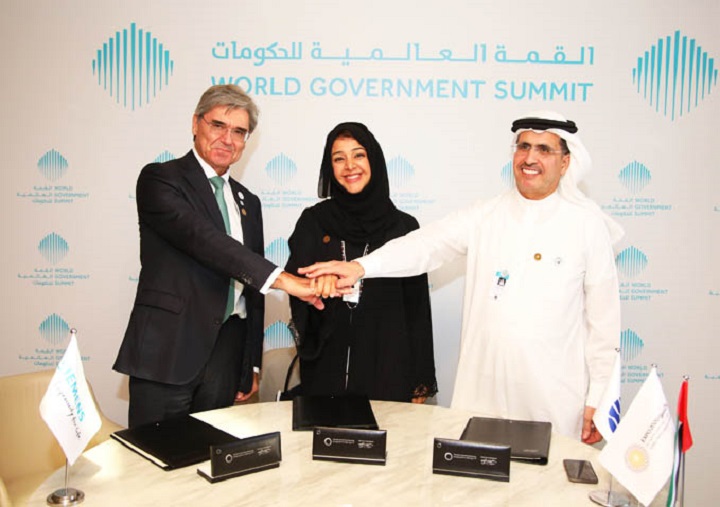A portion of the 1 GW Mohammed bin Rashid Al Maktoum Solar Park – currently taking shape in the desert plains outside of Dubai – will be used to power a hydrogen electrolysis facility.
This pilot scheme will be the result of a memorandum of understanding (MoU) between Siemens and the Dubai Electricity and Water Authority (DEWA), which will host an outdoor testing area at the solar plant.
The actual size of the solar-hydrogen electrolysis plant is described as merely “MW-scale” in a DEWA press release, but should the facility prove its worth, then it could certainly be scaled to meet the energy needs of the Emirate.
The stored hydrogen created by the electrolysis process can be utilized in a number of applications, including re-electrification, transportation and even re-introduction into the gas network.
According to DEWA, the hydrogen produced at the pilot plant will be used to power fuel-cell vehicles in the Emirate.
“This is truly a landmark project for Dubai and the world, and a great step forward in building a secure supply of sustainable energy for the region’s economic development,” said Siemens president and CEO Joe Kaeser.
“Green hydrogen can be a fuel of the future. It will accelerate the adoption of renewable energy in the Middle East through sector coupling, offering new use cases, such as e-mobility and other environmentally-friendly industries.”
The MoU was signed at the Expo 2020 Dubai, taking place this week. Visitors to the expo can take a trip in vehicles powered by green hydrogen.
DEWA CEO Saeed Mohammed Al Tayer announced at the event that the utility will invest 81 billion dirhams ($22 billion) in energy projects in Dubai over the next five years – the bulk of which will be invested into renewables.
“Our strategy is to be 75% renewable by 2050,” said Al Tayer. “By 2020 we will exceed our target of 7%; I think we will achieve around 8-9%.”
This content is protected by copyright and may not be reused. If you want to cooperate with us and would like to reuse some of our content, please contact: editors@pv-magazine.com.



By submitting this form you agree to pv magazine using your data for the purposes of publishing your comment.
Your personal data will only be disclosed or otherwise transmitted to third parties for the purposes of spam filtering or if this is necessary for technical maintenance of the website. Any other transfer to third parties will not take place unless this is justified on the basis of applicable data protection regulations or if pv magazine is legally obliged to do so.
You may revoke this consent at any time with effect for the future, in which case your personal data will be deleted immediately. Otherwise, your data will be deleted if pv magazine has processed your request or the purpose of data storage is fulfilled.
Further information on data privacy can be found in our Data Protection Policy.